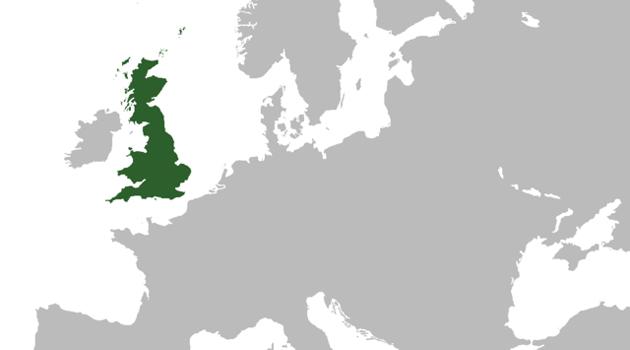UK: Gangs are abusing impoverished women from Eastern Europe, including Roma, for fake marriages

Klara Balogová was 18 years old, without a cent, and in an advanced stage of pregnancy when she traveled 1 000 kilometers from Slovakia to England to marry a man she had never met. She knew that neither she nor her child were any of his concern.
All the man wanted was an EU identity card. The marriage was arranged so the 23-year-old Pakistani groom could acquire the right to live and work in Europe, the Associated Press reports.
Balogová was promised pleasant housing in England and maybe even some money. Several days after her arrival, she was taken from Manchester to Glasgow, Scotland, where she was kept prisoner in an apartment with her future husband.
When her husband wasn’t there, his younger brother guarded her. They also confiscated her documents.
"They never let me out. They told me it wasn’t possible," the petite Romani woman says in a hesitant, quiet voice.
"Once a week we went out together," she says. "They never let me out by myself."
Every year there are dozens of women like her who come from the more impoverished corners of Eastern Europe and are lured into fake marriages in the West. The men are frequently from Africa or Asia and pay significant sums of money to leave their home countries and improve their living standards through this method.
They want to work in Europe, to eventually request welfare benefits there, and to travel freely. Almost all of the profits they make are raked in by the matchmakers, who are frequently organized gangs.
These women then frequently end up falsely imprisoned in a strange land with nothing to show for it. This relatively new form of human trafficking is coming about at a time when Britain is constantly toughening its border control measures and politicians across Western Europe are calling for harsher interventions against immigration.
Illegal marriages as a way to get around immigration laws are happening more and more frequently and involve both direct agreements between a bride and groom as well as bride sales. Most brides get their travel paid to either Britain, Germany, Ireland or the Netherlands.
Some of them are not fully aware of what they have gotten into until they get to their destination. The women are frequently held hostage until the marriage license is signed; they are then abused by their "groom" and his friends, forced into prostitution or into the drug trade, and in some cases must "marry" more than once, according to EU authorities and charity groups.
"Depending on the case, a woman can be sold for EUR 1 000," says Angelika Molnar, a Europol expert on combating human trafficking. "This is decidedly a lucrative trade."
In Britain the Home Office receives reports of thousands of cases of fake marriages annually; if the woman has agreed to marry for money, she is considered an accessory to the crime. Officials, however, admit that it is difficult to investigate the bride trade.
"I think the problem is much bigger than we are aware of, because we see just a small percentage of the crimes committed," says Phil Brewer, head of Scotland Yard’s unit on human trafficking and kidnapping. "This issue is not yet fully understood."
In order to understand why women are willing to do such a thing, all one has to do is visit Klara Balogová’s village. Just like most of the women from Slovakia abused for this purpose, she comes from a dilapidated Romani settlement.
The settlement lies on the border with Hungary and Ukraine and about 250 Romani people, members of Europe’s most-impoverished minority group, live there. Most of their tin shacks have no water supply, the roads are muddy, the houses are dirty, and the water drawn from a rusty pump is contaminated.
Social worker Nicholas Ogu says he knows several other women from this village who also married in Britain. The business is controlled by a Romani gang who recruit uneducated, unemployed Romani people with the promise of making decent profits abroad.
The women end up as either fake brides or as prostitutes, while the men are forced to work in conditions approximating slavery. The perpetrators are Czechs or Slovaks living in Britain and their "recruiters" do the other half of the business back in their home countries, according to Slovak Ambassador to the UK Miroslav Wlachovský.
The ambassador says a particularly favorite destination is Scotland because local laws make it possible for persons 16 years of age to marry without parental consent, while the rest of Britain has an age limit of 18. Balogová, who is now 22, was not supposed to marry until after giving birth in Britain.
While she was in hospital, however, suspicions were raised regarding the identity of the child’s father. The nurses discovered that their patient had no idea how to get home even though she lived just a few blocks away.
Ultimately her "groom" was deported before the wedding could take place. She was left penniless in a shelter and returned to Slovakia two years ago with the aid of social workers.
Her child, a little girl named Aisa, was taken into the social care system in Britain and remains there because the authorities are concerned her mother would not manage to care for her at home. Despite all of these experiences, Balogová admits that she would try her luck in Britain again.
"I didn’t want to come home," she says. "It was 100 times better for me in England."